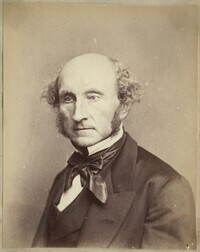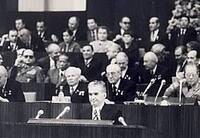Arnon Grunberg's Blog, page 14
May 29, 2025
Contact
 Formality
FormalityOn missed opportunities – Liza Rozovsky in Haaretz:
‘German Chancellor Friedrich Merz, who just a few months ago pledged to invite Prime Minister Benjamin Netanyahu to Germany despite the International Criminal Court's arrest warrant against him, said that Israel's strikes in Gaza can no longer be justified as necessary to fight Hamas. He added that he plans to speak with Netanyahu this week.’
(…)
‘Foreign Minister Johann Wadephul – who visited Israel only three weeks ago and maintains almost daily contact with his Israeli counterpart, Gideon Sa'ar – told WDR TV that "Germany has red lines regarding arms supplies to Israel." While he declined to specify where exactly the red line lies, he stressed that international humanitarian law is not merely a formality. "If we see it being violated, we'll intervene and won't supply arms if further violations occur," he said.’
(…)
‘Dr. Avner Golov, a former senior official at Israel's National Security Council and currently Vice President for Research and Alliances at MIND Israel, told Haaretz that Germany is one of the last European countries to have not imposed an arms embargo on Israel.
"If we push Germany, which is the rightmost outlier in Europe on this issue, to the brink, it'd be one of the most serious blows, both in bilateral relations and in the broader security sphere," he said.
The deterioration of relations with Germany could also seriously jeopardize the EU-Israel trade and cooperation agreement, which has come under scrutiny since EU foreign policy chief Kaja Kallas announced last week the launch of a review into whether Israel is honoring its commitments to human rights and international law.’
(…)
‘A particularly concerning agreement is the Horizon program, which enables Israeli participation in European science and technology initiatives. Unlike some other key accords, Horizon has a fixed expiration date – 2027. After that, a new agreement on scientific and technological cooperation between the EU and Israelwill need to be negotiated and approved unanimously by all 27 EU member states.
German universities maintain extensive and well-funded collaborations with Israeli institutions, including research grants and programs for hosting Israeli scholars. According to Golov, Israel's political situation and international reputation could put these partnerships at risk.
"When you apply for grants or try to initiate collaborations with institutions and researchers, people begin to back away," he said. "What worries me most is the quiet embargo and the silent boycott, far more than the loud ones."’
(…)
‘Another conclusion Golov draws from the developments in relations with Germany, as well as with the United States, is that the damage cannot be measured only by potential losses, such as restrictions on arms exports or the cancellation of existing agreements, but also by missed opportunities and stagnation in development.’
Read the article here.
Many nation states are missed opportunities, among a few opportunities that were not missed.
But the state of Israel has become a few missed opportunities too many.
One self-inflicted wound after another.
But of course, in times of Trump, sheer power is might.
Morality is power as well, but there’s power and power.
The enthusiasm with which Israel turned itself into a pariah state, 82% of the Israelis back expelling Gazans, is nothing less than messianic.
Only a God can save us, Heidegger said shortly before died.
Messianism tend to end with blood baths, sometimes just a minor blood bath, a crucifixion.
May 28, 2025
Metaphor
 Millennia
MillenniaOn liberalism – Adam Gopnik in The New Yorker in 2024:
‘A clear contrast can be made with its ideological competitors: both Marxism and Catholicism, for instance, have more or less explicable rules—call them, nonpejoratively, dogmas. You can’t really be a Marxist without believing that a revolution against the existing capitalist order would be a good thing, and that parliamentary government is something of a bourgeois trick played on the working class. You can’t really be a Catholic without believing that a crisis point in cosmic history came two millennia ago in the Middle East, when a dissident rabbi was crucified and mysteriously revived. You can push either of these beliefs to the edge of metaphor—maybe the rabbi was only believed to be resurrected, and the inner experience of that epiphany is what counts; maybe the revolution will take place peacefully within a parliament and without Molotov cocktails—but you can’t really discard them. Liberalism, on the other hand, can include both faith in free markets and skepticism of free markets, an embrace of social democracy and a rejection of its statism. Its greatest figure, the nineteenth-century British philosopher and parliamentarian John Stuart Mill, was a socialist but also the author of “On Liberty,” which is (to the leftist imagination, at least) a suspiciously libertarian manifesto.’(…)
‘Rawls’s classic “A Theory of Justice” (1971) was a theory about fairness, which revolved around the “liberty principle” (you’re entitled to the basic liberties you’d get from a scheme in which everyone got those same liberties) and the “difference principle” (any inequalities must benefit the worst off). The emphasis on “justice as fairness” presses both professors to stress equality; it’s not “A Theory of Liberty,” after all. “Free and equal” is not the same as “free and fair,” and the difference is where most of the arguing happens among people committed to a liberal society.’
(…)
‘The asymmetry between the Trumpite assault on the judiciary and Biden’s reluctance even to consider enlarging the Supreme Court is typical. Trumpites can and will say anything on earth about judges; liberals are far more reticent, since they don’t want to undermine the institutions that give reality to their ideals.’
(…)
‘Gray’s views are learned, and his targets are many and often deserved: he has sharp things to say about how certain left liberals have reclaimed the Nazi jurist Carl Schmitt and his thesis that politics is a battle to the death between friends and foes.’
(…)
‘What’s curious about anti-liberal critics such as Gray is their evident belief that, after the institutions and the practices on which their working lives and welfare depend are destroyed, the features of the liberal state they like will somehow survive. After liberalism is over, the neat bits will be easily reassembled, and the nasty bits will be gone. Gray can revile what he perceives to be a ruling élite and call to burn it all down, and nothing impedes the dissemination of his views. Without the institutions and the practices that he despises, fear would prevent oppositional books from being published. Try publishing an anti-Communist book in China or a critique of theocracy in Iran. Liberal institutions are the reason that he is allowed to publish his views and to have the career that he and all the other authors here rightly have.’
Read the article here.
What if there is no difference between friend and foe? I’m not sure what is left without that difference and I don’t think that Gopnik bothered to read Schmitt.
The liberals believe in institutions. That’s their god.
Yes, without the institutions we would be all lost.
But the faith some of us place in institutions turn the institutions into a totem.
May 27, 2025
Attack
 Aspect
AspectOn the wreckage – Mark Lila in NYRB in 1995:
‘In the Sixties, however, the Adornos came under strong, generally unscrupulous, attack by members of the German New Left, who charged them with bowdlerizing Benjamin’s revolutionary Marxism. This political dispute was only intensified with the publication in 1966 of Benjamin’s selected correspondence, edited jointly by Adorno and the Jewish historian Gershom Scholem, one of Benjamin’s oldest friends.
These letters showed that although Benjamin professed to be a Marxist of sorts from the mid-Twenties on, from his first days to his last he was profoundly absorbed by theological questions. This aspect of his thought appears most clearly in his exchanges with Scholem, which make up the largest surviving portion of his correspondence. What began in Germany as a narrow squabble over Benjamin’s legacy soon became a significant controversy over the relation between political and theological ideas.
In spite of Benjamin’s lifelong preoccupation with theology and politics, English-speaking readers have largely concentrated on his literary criticism and ignored his philosophical writings, which have been central to his readers on the continent. The sorry state of English editions of his works has only perpetuated our provinciality in this regard.’
(…)
‘Walter Benjamin was born into a well-off family of Berlin Jews in 1892. His father had made a modest fortune as an auctioneer and art dealer, and later expanded it as an investor. Benjamin wrote two memoirs of his youth, “A Berlin Chronicle” and “Berlin Childhood,” bittersweet reflections on his privileged upbringing in the well-to-do western section of the city, filled with memories of promenades, cool relations with his parents, and absurd luxury. Because young Walter was somewhat sickly as a boy, his parents sent him away for two years to a provincial boarding school, one of whose directors, Gustav Wyneken, was a major force in the German Youth Movement. Benjamin soon began writing for one of the movement’s journals, Der Anfang, and remained allied with Wyneken and his Nietzschean pedagogical movement until the First World War.’
(…)
‘We learn here that young Walter, like many German Jews drawn to the early essays of Martin Buber, flirted with political Zionism in the summer of 1912. But in a letter to his friend Ludwig Strauss later that September, he wrote: “I see three Zionist forms of Jewishness: Palestine Zionism (a natural necessity); German Zionism in its halfness; and cultural Zionism, which sees Jewish values everywhere and works for them. Here I will stay, and I believe I must stay.” This would remain his position throughout his life.’
(…)
‘Scholem, too, had grown up in the bosom of the liberal Judaism of Berlin, but he was appalled by the cultural compromises it represented, with both Christmas trees and menorahs. When he received a picture of Theodor Herzl as a Christmas present one year, he was so disgusted that he began to learn Hebrew, mastering it quickly. By 1917 his family had turned him out of the house for becoming a Zionist, and he had decided to study the history of Kabbala.’
(…)
‘Statements like these are common-places in the history of philosophical Romanticism. The desire to reaffirm religious experience in the wake of Enlightenment secularism had long before been expressed in the works of Hamann, Jacobi, Schleiermacher, Novalis, and Friedrich Schlegel. Typically, such writers turned toward a crypto-theological view of language as an alternative to Kant’s philosophy, and Benjamin followed their lead. In 1916 he wrote to Martin Buber:Every action that derives from the expansive tendency to string words together seems terrible to me….I can understand writing as such as poetic, prophetic, objective in terms of its effect, but in any case only as magical, that is as un-mediated.
To Hugo von Hofmannsthal he later remarked that “every truth has its home, its ancestral palace, in language.”’
(…)
‘Scholem shared Benjamin’s dissatisfaction with Kant and with the denatured “liberal” theology that grew up in his wake; Scholem, too, found the bourgeois pieties of Wilhelmine culture empty and stifling. But rather than turn to Romanticism, he began to study the mystical kabbalistic texts of medieval Judaism, from which he hoped to gain historical perspective on the spiritual dissatisfactions with “debased” experience, to learn how they arose in the history of religion, and to understand the reactions to them. This is the light in which he began to see Benjamin’s early writings—and it is a clarifying light.
Scholem’s research taught him that Judaism had always experienced a deep tension between the discipline of the law, which was a preparation for redemption, and a powerful messianic impulse, which regularly strained against such discipline and sought immediate, direct contact with the divine.’
(…)
‘ Hermann Cohen, the leading figure of the neo-Kantian philosophical school, was the most prominent proponent of reinterpreting Judaism as an ethical system, which he undertook in works such as The Religion of Reason out of the Sources of Judaism(1929).
In his other writings Cohen asserted that Jews and Germans could exist harmoniously in a liberal society, which he considered Germany to be. Against this consensus an entire generation of young Jewish thinkers would rebel, some before World War I, others just after. Scholem and Benjamin belonged to this generation, as did Martin Buber, Franz Rosenzweig, Franz Kafka, Ernst Bloch, and Leo Strauss. In their letters, Scholem and Benjamin seem very conscious of their affinities with these writers, and they discuss them frequently. Both were particularly taken with Rosenzweig’s Star of Redemption (1921), which they considered a significant critique of both Kantianism and liberal Judaism, and with the stories of Kafka, which offered, as Scholem later put it, “an intuitive affirmation of mystical themes which walk a fine line between religion and nihilism.”’
(…)
‘ In 1920 he published “The Critique of Violence,” a dense and not altogether successful essay on Georges Sorel’s Réflections sur la violence, which was becoming a key text for thinkers on the radical right and left. Benjamin criticizes Sorel, but he shares Sorel’s view that bourgeois life and parliamentary politics are based on an illegitimate official violence, and he proposes that a different kind of violence—a regenerative, “law-making” violence—can bring about a new social order. Less explicit about violence, but no less apocalyptic, is the short “Theologico-Political Fragment” written later that year. Here Benjamin writes that although “only the Messiah himself consummates all history,” history does not prepare for his arrival: the messianic moment comes unannounced, bringing history to an abrupt, perhaps violent stop. To strive for the passing away of the natural world is, Benjamin says here, “the task of world politics, whose method must be called nihilism.”If Benjamin had never written another word about politics after these essays, we would probably understand him today as a proponent of that diffuse strain of vitalism in early twentieth-century Continental thought that drew many intellectuals to radical right-wing views and movements after World War I.’
(…)
‘Benjamin’s notion of criticism as alchemy, his conviction that politics is a matter of apocalyptic nihilism, and his fascination with right-wing vitalism all came together in his major work of the Twenties, Ursprung des deutschen Trauerspiels (The Origin of German Tragic Drama).
Benjamin had moved to Frankfurt in 1923 to pursue the advanced degree that would have permitted him to teach in a university and to be recognized, as he later put it, as “the foremost critic of German literature.” It was a disastrous decision from nearly every standpoint. His professors were hostile to his planned dissertation on the long-neglected German “sorrow-plays” (Trauerspiele) of the seventeenth century, which they considered an idiosyncratic subject. Moreover, Benjamin seemed determined to flout every academic convention, writing in the most esoteric of styles and prefacing his book with a willfully obscure “Epistemo-Critical Prologue” that summarized his views on Plato, German idealism, Romanticism, beauty, works of art, language, and symbolism. The author himself described these indigestible pages to Scholem as a display of “unmitigated chutzpah” comprehensible only to students of Kabbala. Benjamin finally withdrew the dissertation when he was warned it would be rejected.’
(…)
‘By his own admission, Benjamin’s theological and political reflections in the Trauerspiel book were also inspired by the right-wing legal theorist (and later Nazi functionary) Carl Schmitt, whose Political Theology had just been published in 1922.
Two features of Schmitt’s work evidently attracted Benjamin. One was Schmitt’s assertion that “all significant concepts of the modern theory of the state are secularized theological concepts.” The other was Schmitt’s characterization of all legal norms as resting, explicitly or implicitly, on a sovereign “decision,” which either applied rules generally to people’s actions or announced an “exception” to them. This doctrine, which came to be called decisionism, is summarized in Schmitt’s statement that “sovereign is he who decides on the exception.”’
(…)
‘Benjamin’s attraction to Marxism was widely shared at the time, but remains a puzzle. Although his early writings had defended the independence of a spiritual realm beyond “debased” modern experience, he now called himself a materialist; after criticizing historical progress in the name of a vague apocalyptic messianism, he now called himself a Marxist supporting Communist political action. How was this possible?Gershom Scholem thought he had the answer. As he would later write, in all messianic movements and thinkers there is a dangerous impulse to “press for the end,” to try to achieve here on earth what has been promised to us only in heaven. Religious history shows that “every attempt to realize [this impulse] tears open the abysses which lead each of its manifestations ad absurdam.”’
(…)
‘Several months after Benjamin’s suicide Hannah Arendt managed to escape from France to Spain. When she passed through Port Bou, she stopped to look for her friend’s grave but could find no trace of it. In her baggage, however, she carried a trace of the man. It was a short essay, a sort of intellectual last will and testament entitled “Theses on the Philosophy of History,” which Benjamin had given her just before his attempted flight. His expressed wish was that the essay not be published, but when Adorno received the manuscript, he decided it was too important to remain in private hands. It was first printed by the Institute in a mimeographed memorial tribute to Benjamin in 1942, and has since become one of the most controversial of his writings.
The “Theses” reflect Benjamin’s apocalyptic vision of European politics in the late Thirties and his disappointment with communism’s betrayal in the Hitler-Stalin pact. He had remained stubbornly, irresponsibly silent about the Moscow show trials in the Thirties, and throughout the decade could not bring himself to criticize Stalin publicly, even after Asja Lacis had been condemned to the gulag. But Stalin’s pact with the devil finally shattered any illusions he may have had about communism’s redemptive mission. In the Twenties Benjamin had played with the ideas of divine violence, radical decisionism, and political nihilism; in the early Thirties he could still idealize the frenzy of what he called “the destructive character.” But now the real apocalypse approached, bringing with it satanic violence, not the Messiah.
At a deeper level, the “Theses” represent the last dramatic encounter between Benjamin’s theological metaphysics and his historical materialism. The essay opens with an image of the philosophy of history as a chess game, which a puppet called historical materialism can win only “if it enlists the services of theology, which today,” he says, “is wizened and has to keep out of sight.” And what can materialism learn from theology? Essentially that the idea of historical progress is an illusion, that history is nothing but a series of catastrophes piling wreckage upon wreckage, reaching up to the heavens.’
(…)
‘For genuine materialists, there can be no real tension between the sacred and profane, only between illusion and enlightenment. But for the theologically attuned this tension will continue to exist as long as we must find our way in a fallen world. They may cope with it by living within law and tradition, or they may try to abolish the tension altogether. Of these, some withdraw into an otherworldly mysticism or esotericism, some throw themselves fully into the world in hopes of redeeming it with a new law, a new gospel, or a new social order. Others, like Benjamin, flirt promiscuously with both possibilities, remaining a riddle to themselves and to all who encounter them.’
Read the article here.
Wreckage upon wreckage. If you know this, you flirt promiscuously with all possibilities.
And Benjamin’s materialism started with all too human love, as often is the case.
The state: a secularized theological concept.
May 26, 2025
Influence
 Junctures
JuncturesOn Jacob Taubes – Eugene R. Sheppard in TLS in 2023:
‘Jacob Taubes (1923–87) is now best known for The Political Theology of Paul, posthumously published in German in 1993. His portrayal of the apostle Paul as a radical Jew inspired a number of scholars, from Daniel Boyarin to Giorgio Agamben, to reassess this first-century religious figure, regarding him as the key to modern political transformation. In his lifetime, however, Taubes only published one full book, his doctoral dissertation Abendländische Eschatologie(1947; Occidental Eschatology, 2009). How, then, did he attain such influence?Much of Taubes’s life and legacy developed through encounters with a remarkable set of thinkers and scholars. Born in 1923, he came of age in Switzerland a generation after the German interwar thinkers who figure throughout his postwar oeuvre: Walter Benjamin, Martin Heidegger, Karl Barth, Hans Urs von Balthasar, Hans Jonas, Karl Löwith, Gershom Scholem, Ernst Bloch, Martin Buber, Leo Strauss and Carl Schmitt. Astounding stories of how Taubes appeared on the scene at crucial junctures in people’s lives have circulated for decades: his disarming charisma; his brilliant insight into the most arcane and difficult works of religion and philosophy; his roles as mentor, teacher and collaborator in storied seminars; and his publications, which demonstrate an astonishing interdisciplinary breadth of interests and erudition. Yet there are just as many stories, if not more, that convey his dishonesty, cruelty, recklessness, unreliability and obsessiveness.’
(…)
‘The tragic fate of his wife, the thinker and writer Susan Taubes (née Feldmann), who drowned herself in 1969, was the conclusion of one such relationship (see facing page). Their correspondence in their early years (between 1950 and 1952) reveals Jacob as intellectual mentor to the ambitious and vibrant young bride. He was attempting to build an academic career while Susan was pursuing postgraduate study; her work took a back seat, despite her writing a doctoral thesis at Harvard on “the absent God” in the work of Simone Weil. They both held teaching positions at Columbia during the early 1960s, but Jacob transitioned to a career at the Freie Universität Berlin as their marriage unravelled. While they both had affairs, Jacob’s appetite for seduction knew no bounds. In the autumn of 1969 Susan had just published her novel Divorcing (which was republished in 2020 by NYRB Classics, and which Muller takes to be a thinly veiled autobiographical portrait of her tumultuous relationship with Jacob) when she threw herself into the ocean off Long Island.’
(…)
‘Was Taubes a creative genius or a charlatan? The figure who emerges from such episodes inhabited several seemingly incompatible worlds. Many saw him as a virtuoso who with little or no preparation could stun his audience by exhibiting mastery of a specialized topic: upon being handed a philosophical or theological tome, for instance, he would review it for a few minutes before rendering a synopsis of the book’s main thesis, complete with a systematic critique of the work. While some saw this as merely a cheap parlour trick, the ability to capture the essence of a work so effortlessly surely impresses, even if it does not ripen into more rigorous expression. Muller’s biography leaves readers with the impression that Taubes’s thought amounted to a series of ideologically motivated, intuitive provocations, a synthesis of half-borrowed and recycled ideas.’
(…)
‘Taubes’s antinomian Jewish character – he saw purported fault lines between the secular and the sacred as illusory and pernicious – found expression in his famous set of lectures on the apostle Paul, delivered in 1986. Taubes’s Paul is a radical Jew who agitated against Pharisaic and early rabbinic conceptions of law and authority, defining himself in dialectical “relation to the law he rejects”. Harnessing that antinomian impulse, he spread his teaching to non-Jewish subjects of the Roman Empire. Paul had long been of interest to Taubes, and Muller even unearths his father Zwi Taubes’s earlier scholarly interest in the apostle. For Taubes fils, Paul’s revolutionary push was expressed in terms of the Jewish subjugation under Roman imperial authority. As Taubes humorously asserted, Paul’s notoriously difficult Greek is understandable only if you can read Yiddish.’
(…)
‘Taubes’s brand of self-conscious, theologically infused Marxism is evident in how he lived as a Jew in postwar West Germany. Among the most striking images offered here is one taken in 1986. At a gathering of friends in Berlinhe is seen wearing a striped ritual garment made out of woven wool (a tallit katan). The caption under the picture tells us that “the tallit katan” is “typically worn under the shirt, but here [it appears] on full display”. Muller is surely correct in diagnosing Taubes’s propensity towards exhibitionism – he took pathological delight in transgressing norms and mores, whether they were dietary laws or sartorial customs – but I would suggest another plausible interpretation: Taubes wanted to defy expectations of how a Jew in Berlin should appear. When wearing the garb on the outside, many Jews want to remind themselves to live piously. In the more complicated case of Taubes, however, he seems to out on the symbol of pious observance while rebelling against it. He had contempt for the bourgeois, assimilationist ethos adopted by German Jewish orthodoxy, wherein one had to downplay or hide alien markers of religious identification in public, outside the synagogue or home. His fashion taste exemplifies a determined resistance against conventions and norms of the world as given – a world that for him, as for his Paul, must be seen as incapable of gradual redemptive transformation.’
Read the article here.
‘A series of ideologically motivated, intuitive provocations, a synthesis of half-borrowed and recycled ideas,’ that doesn’t sound very much appealing.
Bug apparently skilled thinkers and philosophers couldn’t see through it, even though Gershom Scholem locked himself up during a dinner party to avoid his former friend.
The main question is: how to live in a world incapable of gradual redemptive transformation without becoming a cynic or a seasoned nihilist.
The other option seems to be: developing an appetite for seduction that knows no bounds.
May 25, 2025
Benefits
 Proclamations
ProclamationsOn demonization – Bernhard Poerksen in Der Spiegel:
‘First, there are a number of gripping exposés that demonstrate what makes this party, dedicated as it is to the fear of the future, so dangerous. It’s adoption of Russian and Chinese propaganda, the endless string of donation and financial scandals, the potential corruptibility of individual functionaries, the verifiable links within right-wing extremist groups like the Identitarians, the Reichsbürger and the neo-Nazis.
Second, DER SPIEGEL exhibits a significant degree of linguistic sensitivity. Nobody at the magazine brands all AfD supporters across the board as Nazis or fascists and it is cautious and exacting when it comes to applying labels, apparently having long-since realized that overused proclamations warning loudly and shrilly of the return of fascism are no longer particularly effective. DER SPIEGEL’s coverage has more the character of a meticulous examination with a historical depth of focus. There are numerous essays painstakingly striving for accuracy, exploring the question of how to understand this new authoritarianism and how it should be combated – and whether Donald Trump, Marine Le Pen or Björn Höcke should be called fascists and what the actual analytical benefits might be of doing so. In brief: A facile demonization of the AfD is nowhere to be found.’
(…)
‘Again, DER SPIEGEL delivers comprehensively substantiated, multifaceted, concrete warnings from the deeply reactionary, intellectually entrenched AfD world. It is a world in which sweaty, hardworking men still chop their own wood and where there is, happily, no climate crisis. It is a world in which the Nazi era is "but a spot of bird shit” (Alexander Gauland) on German history and in which the party once campaigned for its own deportation and remigration program with gummy-candy airplanes for the kids and with candidates dressed up as pilots ready to carry out the deportations themselves. All of this is intelligently and comprehensively covered.’
(…)
‘It is acceptable for journalists to leverage their entire rhetorical weight in the defense of democracy, but they are not allowed to do the same on behalf of ecology or climate policy issues. Why not? Is the political reality more important than the ecological reality? Is there a concealed hierarchy of relevance among the great crises we are facing? Are free elections existentially more important than clean air? I would like to have a more precise understanding of these questions.’
(…)
‘As such, it might make sense to justifiably ignore certain individual statements, or at least to cut them off from additional journalistic oxygen, even if doing so is increasingly performative given that the AfD has long since developed its own parallel mediaverse. The philosopher Jürgen Habermas refers to this approach as a necessary "de-thematization.” As a side note: Deliberately ignoring certain inhumane viewpoints is not censorship, dear Elon Musk fans, it is what’s known as civilization.’
(…)
‘All in all, it serves to highlight the fact that there is a need in the democratic center of society to finally address migration with the necessary resoluteness – and not because (to highlight yet another popular narrative promulgated by the populists) 2029 will necessarily produce Germany’s second female chancellor in the form of AfD grande dame Alice Weidel. Such an inevitability doesn’t exist. The danger is that in these times of polycrisis, in which Germany needs nothing so much as a broad alliance for reform, the country’s societal center is unable to produce more than a preventative coalition rather than a proactive coalition. Fending off an AfD government is vital to preventing the country from drifting towards authoritarianism. But that is not a platform that will prepare Germany for the future.’
(…)
‘My argument: The serious journalism of the future will be transparent and rooted in dialogue. Or it won’t exist at all. Claims of irrefutability have never been particularly credible, but now, fueled by the deeply mendacious grassroots rhetoric of Big Tech oligarchs and a populist, yet extremely effective, critique from elites and experts, they are increasingly becoming scandalous in their own right. Beyond that, journalism is under greater pressure than ever through the apparently unstoppable gravitational slide of the advertising market toward the digital behemoths and the attacks of those who accuse journalists of little more than a pack of liars. As such, a stabile relationship of trust and the solidarity of a paying readership is an absolute imperative. And for that reason alone, it is important to form a new pact with those who, in an earlier media epoch, were simply known as the audience (a famous line by journalism critic Jay Rosen). Today, this audience has long since begun producing its own media, ready to go live at any moment merely by taking their mobile phone out of their pocket. Classic journalism, as the fourth pillar of democracy, has been joined by a fifth pillar, made up of the networked many, a radically pluralistic public that follows its own rules – reporting, setting the agenda, commenting and publishing, sometimes constructive and inciteful, sometimes angry and shockingly simplistic, and often with tremendous impact.’
Read the article here.
The audience is not the audience anymore, the audience has been producing its own media for a decade or more. And only for that reason the newspaper and the weekly magazine are not what they used to be 50 years ago.
I have the feeling that the endless self-production of media (i.e. social media) has reached its peak.
Also, the attempt to not give oxygen to certain people with certain political positions is, as the author acknowledges, largely ceremonial.
And in order to have a Germany with a small AfD or a US with a small Trump, a marginalized Trump, more will be needed than just a platform that is anti-AfD, or anti-Trump, just remind yourself of the US elections in 2024.
Serious journalism will not save us, but without it the doom will start much earlier.
May 24, 2025
Campaign
 Government
GovernmentOn the pariah express – Esther Solomon in Haaretz:
‘Those sanctions would be a codification of what already seems to be a race towards international pariah status. This week, a swathe of European states and Canada warned of "concrete steps" towards isolating Israel, principally economically, for its war in Gaza and blockade of aid. Israel is also being frozen out of an emerging new Middle East geopolitical architecture.
But, inside Israel, talk of the country becoming a pariah state is apparently taboo. When opposition party leader Yair Golan told a morning radio show that if it "does not return to acting like a sane country" then pariah status beckons. Slamming the government as populated by "vengeful, unintelligent, and immoral individuals," he continued: a "sane state does not wage war against civilians, does not kill babies as a hobby, and does not set goals for itself like the expulsion of a population."
Cue an almighty outcry, and not only from Netanyahu, who predictably described Golan's comments as "disgraceful antisemitic blood libels."
It is one of those regional ironies that at the same time that momentum is building for sanctions against Israel, sanctions are being lifted against a post-Assad Syria led by a former jihadist. Historically, Israelis have responded to even campaigners for sanctions, such as the BDS campaign, by rallying around the flag.’
Read the article here.
The pariah-express is fairly popular in Israel.
Killing babies as a hobby, well, yes, hobby is the right word here.
I repeat it, political Messianism and the pariah express are more or less the same.
Grant
 Prowess
ProwessOn science – The Economist:
‘Scientists in america are used to being the best. The country is home to the world’s foremost universities, hosts the lion’s share of scientific Nobel laureates and has long been among the top producers of influential research papers. Generous funding helps keep the system running. Counting both taxpayer and industrial dollars, America spends more on research than any other country. The federal government doles out around $120bn a year, $50bn or so of which goes towards tens of thousands of grants and contracts for higher-education institutions, with the rest going to public research bodies.
Now, however, many of America’s top scientific minds are troubled. In the space of a few months the Trump administration has upended well-established ways of funding and conducting research. Actions with the stated goal of cutting costs and stamping out diversity, equity and inclusion (dei) initiatives are taking a toll on scientific endeavour. And such actions are broadening. On May 15th it emerged that the administration had cancelled grants made to Harvard University for research on everything from Arctic geochemistry to quantum physics, following a similar move against Columbia. The consequences of these cuts for America’s scientific prowess could be profound.’
(…)
‘Since Mr Trump’s return to the White House, somewhere in the region of $8bn has been cancelled or withdrawn from scientists or their institutions, equivalent to nearly 16% of the yearly federal grant budget for higher education. A further $12.2bn was rescinded but has since been reinstated by courts.’
(…)
‘Some nih-funded research on vaccines has been cancelled, as have $11bn-worth of special funds from the Centres for Disease Control and Prevention (cdc) for pandemic-related research. In March Ralph Baric, an epidemiologist at the University of North Carolina at Chapel Hill who helped test the Moderna mrna vaccine for covid-19, had several vaccine grants terminated. One project aimed to develop broad-spectrum vaccines for the same family of viruses that sars-cov-2 comes from; scientists fear other strains might cross from animals to humans. Both the cdc and nih justified such cuts by saying that the covid-19 pandemic is over. But this is short-sighted, argues Dr Baric, given the number of worrying viruses. “We’re in for multiple pandemics” in the future, he says. “I guess we’ll have to buy the drugs from the Chinese.”’
(…)
‘Susan Collins, the Republican chairwoman of the Senate appropriations committee, which is responsible for modifying the president’s budget, has expressed concern that Mr Trump’s cuts will hurt America’s competitiveness in biotech and yield ground to China. Katie Britt, a Trump loyalist and senator for Alabama, has spoken to Robert F. Kennedy junior, the health secretary, about the the need for research to continue. (The University of Alabama at Birmingham is among the top recipients of nih money.) When on May 14th Mr Kennedy appeared before lawmakers to defend the restructuring of the hhs, Bill Cassidy, the Republican chairman of the Senate health committee, asked him to reassure Americans that the reforms “will make their lives easier, not harder”.’
(…)
‘A country where approved grants can be terminated before work is finished and appealing against decisions is difficult becomes a less attractive place to do science. Some researchers may consider moving abroad. American science has long seen itself as the world’s best; today it faces its gravest moment ever.’
Read the article here.
Unconditional surrender to China? Or just self-inflicted wounds, chapter 16.
In the fight against boredom a self-inflicted wound can be exciting.
May 23, 2025
Investigation
 Deployed
DeployedOn denial – Ezra Klein, Jake Tapper in NYT:
‘So what was going on behind that description?
I think Robert Hur and the prosecutors were legitimately flabbergasted by how President Biden appeared in that deposition in the interview in October 2023. They were stunned.
And I think they legitimately debated how he would appear to a jury and thought: If there’s even one person who sees him the way that we see him — which is addled — we’re not going to be able to get a conviction.
What was happening in those conversations that he seemed so addled?If you read the transcript of the Hur interview, he is just meandering, unable to focus on a train of thought. He doesn’t know dates. He’s asked about a period that’s significant for the investigation, about his holding and sharing information that is of a classified nature — so 2017, 2018.
First of all, he thinks that it is around that time that Beau died and that Beau was deployed. It’s not. Beau died in 2015, and he had been deployed years before that.
Second of all, he’s just unable to place events.’
(…)
‘What are other accommodations that the staff begins to make over the course of that term?
The hours in which he’s asked to function. It’s not normal to say that a president can’t do anything after 6 p.m. — or should only very rarely do something after 6 p.m. That’s not normal.’
(…)
‘I give the Democratic Party some credit here. It did, in the end, happen in 2024. It happened too late, but the party did something very unusual and pushed Biden off the ticket. It did persuade him not to run.
Well, it’s like what Churchill said about the United States: You can always count on them to do the right thing after they’ve exhausted every other possible option.’
Read the complete interview here.
Back then, all other possibilities were not timely exhausted.
Are all other possibilities exhausted right now?
And yes one is reminded of let’s say the time that Konstantin Chernenko served as the General Secretary of the Communist Party of the Soviet Union.
The land of the free and the land of the not so free don’t know how to handle aging leaders.
But the medical condition of Biden is also a convenient scapegoat.
And I know some octogenarians who hate Trump but who are comforted by his energy. Maybe there is hope for the octogenarian, they tell themselves.
Then again, hope is overestimated.
May 21, 2025
Fiat
 Implicitly
ImplicitlyOn Paul and Jacob Taubes – Mark Lila un NYRB in 2008:
‘The first thinker to promote Paul as a resource for the left was Jacob Taubes, who died in 1987. Taubes was born in Switzerland in 1923 into a distinguished rabbinic family and was himself ordained in the 1940s. After the war, and after publishing his one book, a study of Western eschatology, Taubes became a peripatetic professor and political gadfly moving restlessly between New York, Berlin, Jerusalem, and Paris, leaving admiring students and broken friendships strewn behind him. Frequent the intellectual circles of any of these cities and you will discover that everyone of a certain age has a Taubes story. In New York you learn that in the late Forties he taught Talmud to some future neoconservatives; in Berlin you find a photo of him addressing a demonstration of Sixties radicals while Rudi Dutschke and Herbert Marcuse sit admiringly at his side. Zelig had nothing on Jacob Taubes.’
(…)
‘After Moses, there was never a better Jew than Paul. “I regard him,” says Taubes dryly, “as more Jewish than any Reform rabbi, or any Liberal rabbi, I ever heard in Germany, England, America, Switzerland, or anywhere.” Mainstream Jews were baffled when Taubes declared himself to be a Pauline Jew; he would respond that while Jeremiah was a prophet from and to the Jews, Paul showed it is possible to be “an apostle from the Jews to the nations”—which is exactly how Taubes saw himself.
He attracted Christian scholars who agreed with this reading of Paul, including one who made the marvelously anachronistic remark that the language of the Pauline epistles “isn’t Greek, it’s Yiddish!”’
(…)
‘Every society, according to Schmitt, rests implicitly on a kind of political revelation. Take, for example, God’s delivery of the Ten Commandments to the Hebrews on Sinai. Seen from a theological angle, God was giving his revealed truth a political form through Moses; seen from a political angle, Moses was invoking God to legitimate his own act of state-creation. For Taubes as for Schmitt, all serious politics has this mysterious double character.
Taubes’s reading of Paul’s Epistle to the Romans offers a good example of this theological-political thinking. Taubes homes in on Paul’s antinomianism—his ruthless attack on Jewish and Roman law as the enemies to be vanquished if the Bible’s messianic promise was to reach the whole of mankind. Paul’s declaration that “you are not under law but under grace” (Romans 6:14) announces a double coup d’état against Moses and Caesar, a sovereign decision establishing a new world order. Jesus has virtually no part in this reading of early Christianity; he was just a martyr in the early years of the insurgency. The real revolutionary was Paul, who imagined a utopian order and brought it about through theological-political fiat. “Compared to this,” Taubes declares, “all the little revolutionaries are nothing.” Translation: if you want to be a big revolutionary, take your cues from Paul.’
Read the article here.
A peripatetic professor who resembled Zelig and who succeeded in making Carl Schmitt kosher again.
You are not under law but under grace, is a double coup d’état indeed.
The revolution will come from Saint Paul.
Indeed the meantime, waiting for a meaningful political revelation.
Dismantle
 Engineering
EngineeringOn glory and markets – David Runciman in LRB:
“The Mont Pelerin Society was set up in 1947 with the aim of ensuring that the apparent triumph of freedom over fascism in the Second World War should instead be understood as a defeat. Inspired by its founding father, Friedrich von Hayek, whose rallying call The Road to Serfdom had been published three years earlier, the organisation believed that the price of victory had been too high. Democratic Western societies – notably the United States – had won the war by aping the economic tactics of their geopolitical rivals, including the Soviet Union: central planning, market controls, massive government spending and extensive social and economic engineering. Once the fighting was over this translated into promises of continued government spending to fund extensive welfare programmes as a reward for the sacrifices that had been made, which in turn ensured that the social and economic engineering would continue. A total war had required a monster state to prosecute it. The monster was now threatening to devour the peace as well. The task at hand was to dismantle that state in the name of liberty. This was the basis of postwar neoliberalism, and the Mont Pelerin Society became its intellectual clearing house.”
(…)
“ Hayek had understood that persuading any society to accept the rigours of capitalist freedom was never going to be easy. Capitalism is scary because it is so uncertain: the whole point of market logic is that no one knows what’s going to work until they have discovered whether or not people are willing to buy it. But that for Hayek was also its glory. The free exchange of goods and ideas produced wonders beyond imagining because the market could see things that no human being could. As a result, the neoliberal prospectus had to be carefully handled. Too much forthrightness about the great unknown that is market wisdom would spook people and have them reaching for familiar comforts. They needed grounds for retaining some kind of faith in the future. Religion might help, Hayek thought. So too would a minimal social security net.”
(…)
“As a result, Hayek suspected that nothing about the vindication of neoliberalism was likely to be straightforward. Some magical thinking would be needed to leaven the mix. Hayek wanted elites properly educated in the virtues of free-market economics but he also wanted them alive to the ways people might recoil from the experience of living under such a system. Quite a few of the educated elite might recoil from it too. They would need to be given something else to believe in to keep their fear of the unknown at bay.
For a time this strategy of freedom by stealth appeared to be paying dividends, but the problem for many members of the Mont Pelerin Society was that it had been too successful. Just when the market seemed to have won, Western elites were no longer satisfied with it. They wanted something like the market-plus: capitalism, for sure, but with greater cohesion, more integration, fewer injustices. They also wanted less risk of ecological catastrophe, once it became clear that the unleashing of human productive potential might threaten the viability of our natural habitat. So they embarked on new projects of global governance, ecological regulation and capitalist co-ordination. This was the danger of magical thinking: it’s hard to know where to stop. By the end of the 1990s it had produced, among other things, the Eurozone, which looked like just the sort of grand scheme of political and economic engineering that Hayek had spent a lifetime warning against. The Mont Pelerin Society was not in triumphant mood at the turn of the century. It was thoroughly spooked.”
(…)
“Neoliberalism morphed into paleolibertarianism: free markets plus primitive racial, sexual and political hierarchies. Hayek had celebrated dynamic entrepreneurs and free-thinking intellectuals. Hayek’s bastards were into cavemen.
By revealing this twist, Slobodian wants to show that the politics of the alt-right – all that wildly orchestrated chest-beating for alienated kids, for men who just want to be actual men, for whites who don’t want to watch endless goodies being parcelled out to undeserving Blacks – is not a repudiation of neoliberal globalisation on behalf of the people who lost out, as is often assumed. This is not a revolt of the left-behinds. It is an attempt to rescue neoliberal capitalism from globalisation, inspired by a bunch of pointy-heads who came to believe that globalisation had become a stalking horse for social engineering on the most extreme scale. Essentially, they thought Hayek had horribly miscalculated. He had believed that allowing for some human solidarity was a price worth paying for global capitalism. Instead, it turned out that the other side was willing to pay the price of global capitalism for the sake of some human solidarity. Globalism turned into the thing that bleeding-heart liberals did. Davos man was either too stupid to know he had been played or too devious to let on that he was playing everyone else. So there was only one thing for red-in-tooth-and-claw neoliberals to do. They had to explode the whole fateful bargain.”
(…)
“Despite these handicaps, the new version of neoliberalism had two things going for it. There were plenty of people buying what these people were selling: if you’re in the race prejudice business, you aren’t going to have to look too hard for customers. Some of the buyers had money to burn and so the next-gen neoliberals got funding: they were able to set up a new network of think tanks and talking shops, they could spread the word through their newsletters and websites and YouTube channels and podcasts, and they found that someone – Charles Koch, for instance – was usually willing to pay them to keep pumping it out. They also discovered it was possible to make good money on the side peddling apocalypticism. On those websites and YouTube channels a message of impending catastrophe was invariably accompanied by ads for the things that might hedge against it: pills and protein powders to get you ready for a world in which only the fittest will survive, books and videos to explain what was at stake, and, above all else, gold – buy it! trade it! hoard it! (gold has long been the financial refuge of the terrified racist). These were the twin pleasures of being on the alt-right.”
(…)
“There are early hints of the craziness to come. Trump’s preoccupation in 2024 with dog and cat-eating Haitian immigrants (‘I’ve seen people on television!’) can probably be traced back to the scare stories about Haitian immigrants with Aids that he will have been familiar with in the 1990s. That same decade, Brimelow was already channelling his inner Bertolt Brecht to complain that US immigration policy meant the federal government ‘is literally dissolving the people and electing a new one’, which is more or less how Trump thinks Biden stole the 2020 presidential election (dead people and illegals on the electoral rolls). It’s fun watching the cheerleaders of the new right having to turn themselves inside out to keep up. In the 1990s the Wall Street Journal was noting with approval that the only people calling for literal open borders were hardcore neoliberals who believed that all barriers to freedom of movement were a constraint on the efficient workings of the international labour market. Now that the Trumpian right thinks the defenders of open borders are communists and traitors, the Wall Street Journal has somewhat changed its tune.”
(…)
“Slobodian has an interesting thesis about the way Hayek’s ideas got turned inside out, but it feels overdetermined and undertheorised. Hayek’s Bastards is a short book – 176 pages – yet it has 52 pages of notes and a 38-page bibliography. Something is out of whack here.
There’s also something missing. Slobodian spends a bit of time tracking the alt-right back to Silicon Valley, where warped ideas of racial and intellectual hierarchy have long had a home. Stanford University, as he points out, was established by a eugenicist. But he doesn’t have much to say about the place of ideas of technology in the war over Hayek’s legacy, even though this is probably where the deepest schism on the new right is to be found. Hayek himself thought technological innovation was the key demonstration of the virtues of market economics, and many of his followers would agree. The problem with planned societies, in their view, is that they get stuck recycling what already exists. Free-market societies stumble across a future no one could have foreseen. The Soviet Union ended with exploding TVs, cars that looked like toys and Chernobyl. The United States, meanwhile, created the internet. Hayek’s disciples have sometimes wanted to frame this difference in evolutionary terms.”
(…)
“The point of the market was to allow us to fulfil our potential. If there are non-human entities who do better under market conditions than we do, might that not be a good reason to shut the market down?The other tension in Hayek’s legacy is more directly visible on the new right itself. Did the market actually build the internet? After all, its true origins can be traced back to the Cold War, when massive US government spending on technology – much of it wasteful, some of it downright paranoid – hardly conformed to Hayek’s template for innovation (this tale began with Hayek wanting states to stop behaving in peacetime as though the wartime economy were a permanent state of affairs). More significant, state spending continues to play a big part in many Silicon Valley success stories. Look at SpaceX, Alphabet, Amazon Web Services (the cloud computing wing that drives the company’s profitability): they all do much of their business off the back of government contracts, and also benefit from extensive subsidies. Have the new tech giants ever truly weaned themselves off government support or are they really just bloated receptacles for taxpayers’ handouts?”
(…)
“What does Trump think? God knows. But these people are all Hayek’s bastards in their different ways and it’s not hard to imagine them eventually ripping each other’s throats out.”
Read the article here.
Undertheorized or not, the book appears to be interesting.
Hayek is misunderstood. That’s the fate of most thinkers.
Yes the WSJ had to change its tune when globalism and open borders became the enemy instead of the friend of free market-believers.
The people or many people were willing to accept global capitalism “for the sake of solidarity.”Some aspects of global capitalism became dirty in the eyes of those who despise all kinds of solidarity.
In the end people will be at other people’s throats, nit because this is how nature works, but because this is how ideology works.
And if the free market is the inly true innovator remains an open question.
I’m afraid not, because the truly free market doesn’t exist. Governments make the market possible with all kinds of secret and not so secret subventions.
Arnon Grunberg's Blog
- Arnon Grunberg's profile
- 415 followers



